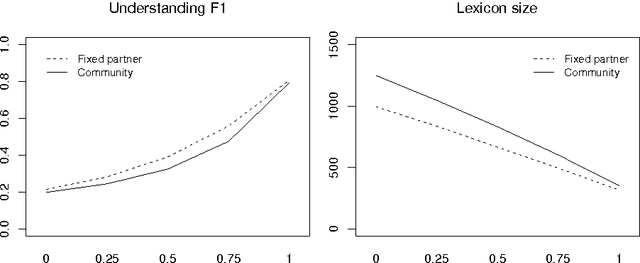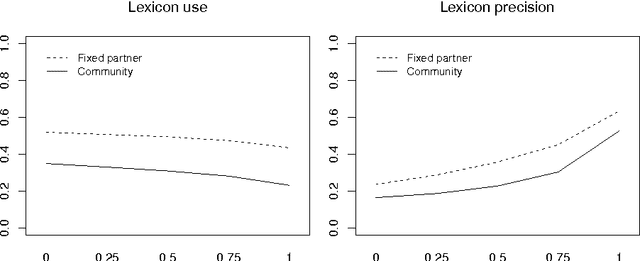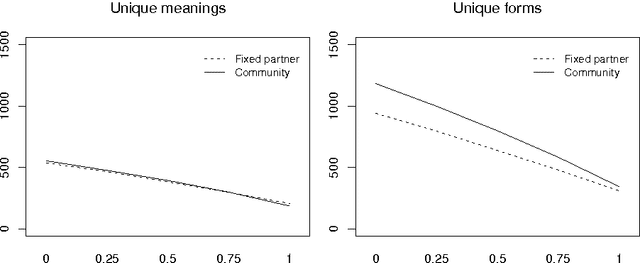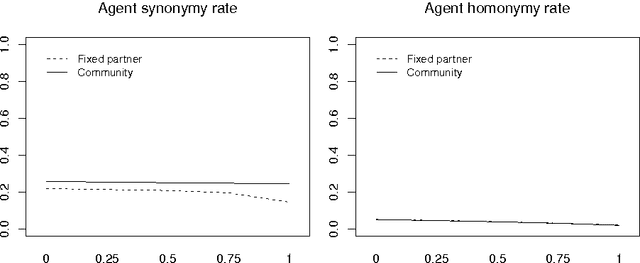Establishing linguistic conventions in task-oriented primeval dialogue
Paper and Code
Mar 02, 2012



In this paper, we claim that language is likely to have emerged as a mechanism for coordinating the solution of complex tasks. To confirm this thesis, computer simulations are performed based on the coordination task presented by Garrod & Anderson (1987). The role of success in task-oriented dialogue is analytically evaluated with the help of performance measurements and a thorough lexical analysis of the emergent communication system. Simulation results confirm a strong effect of success mattering on both reliability and dispersion of linguistic conventions.
* Analysis of Verbal and Nonverbal Communication and Enactment. The
Processing Issues. Lecture Notes in Computer Science, Volume 6800/2011, 2011,
pp. 48-55 * 8 pages, 5 figures. In proceedings of the COST 2102 International
Conference, Budapest, Hungary, September 7-10, 2010, Revised Selected Papers
 Add to Chrome
Add to Chrome Add to Firefox
Add to Firefox Add to Edge
Add to Edge